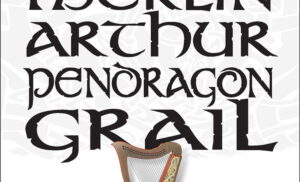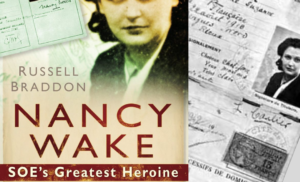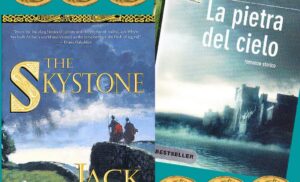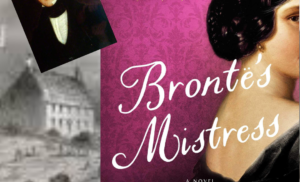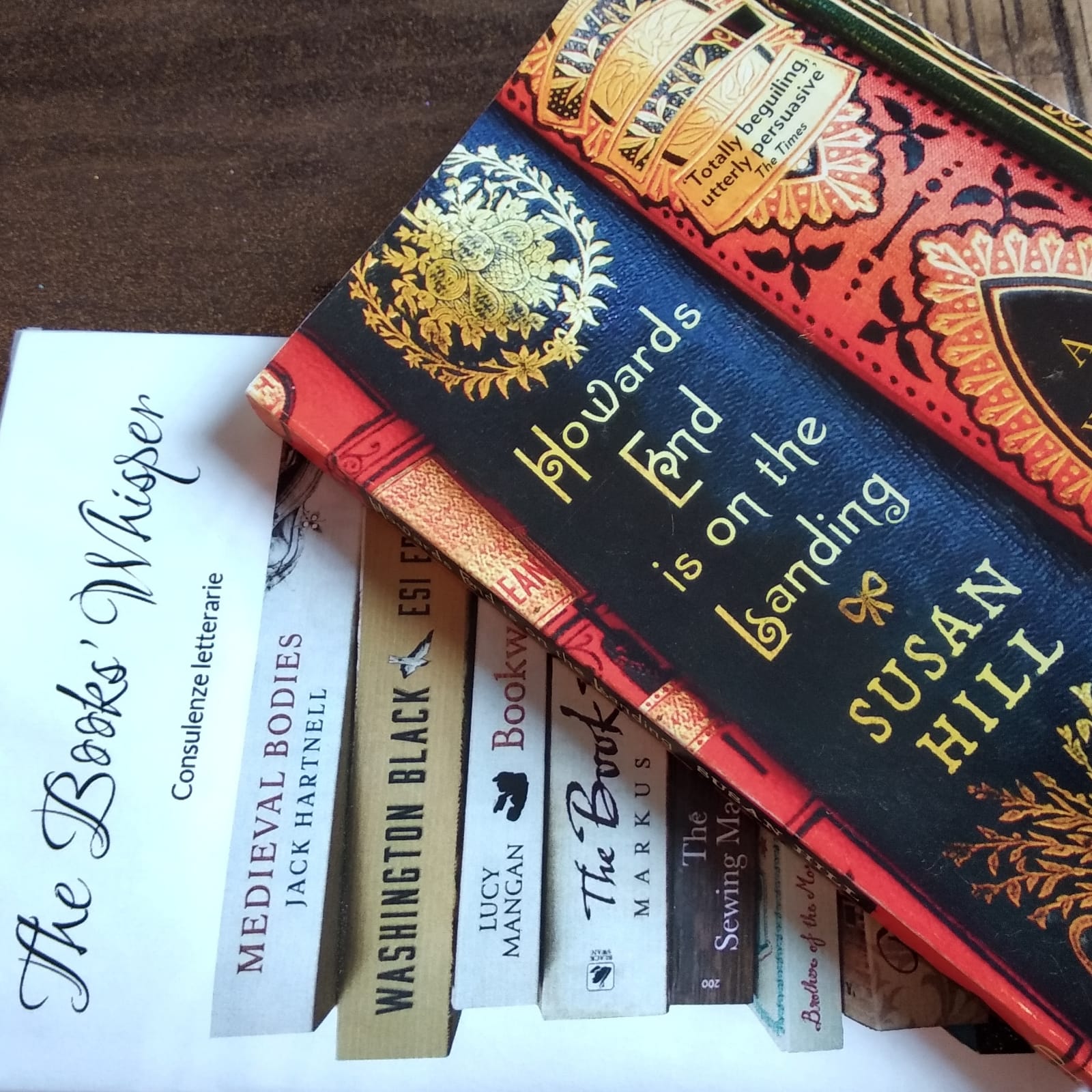
Howards end is on the landing (Eng/Ita)
Howards End is on the Landing is poetry to the reader's mind and soul.
The famous novelist Susan Hill (The woman in black) wrote this essay, which is more of journey through her life and books, after deciding to spend a year reading only books that she had already in her vast home library, without buying new ones. “I wanted to repossess my books, to explore what I had accumulated over a lifetime of reading, and to map this house of many volumes. There are enough here to divert, instruct, entertain, amaze, amuse, edify, improve, enrich me for far longer than a year and every one of them deserves to be taken down and dusted off, opened and read. A book which is left on a shelf is a dead thing but it is also a chrysalis, an inanimate object packed with the potential to burst into new life ( . . . ) The start of the journey also coincided with my decision to curtail my use of the internet, which can have an insidious, corrosive effect. Too much internet usage fragments the brain and dissipates concentration so that after a while, one’s ability to spend long, focused hours immersed in a single subject becomes blunted. Information comes pre-digested in small pieces, one grazes on endless ready-meals and snacks of the mind, and the result is mental malnutrition.”
Each chapter is about different books and subjects and it’s full of anecdotes on Hill’s life, on her experience as a reader and writer, on her meeting famous authors, on reading and much more, written in a magnificent, poetic, elegant and suggestive style. We discover (and re-discover) forgotten or underrated authors and we feel the need to be nurtured by them.
Hill is a true writer. She masters literature, she studied it, she absorbed it, she lived it and has created a masterpiece, a book that should be translated and published everywhere, a book to study, especially by the thousand of people who nowadays write and self-publish. I was told that the number of authors surpasses that of readers, which sadly means that many who write and call themselves writers don’t read, resulting in endless mediocre books and impoverishment and decline of true writing. Just as studying the whole medical encyclopaedia doesn’t makes us doctors, just writing something doesn’t automatically make someone a writer.
Howards end is on the landing also tackles the lost sense of reading today. People compete on the number of books they read in a short time, missing the full experience. “A strange competitiveness has emerged among some readers in the last few years. I have known book-bloggers boast of getting through twenty books plus, a week, as if they were trying for a place in the Guinness Book of Records. Why has reading turned into a form of speed dating? And then there is fashion and the desire to have the very latest book – which doesn’t matter a scrap so long as the book is wanted for itself, not just because it is the one everybody is talking about, and so long as plenty of other, unfashionable books are desired as well. ( . . . ) The best books deserve better. Everything I am reading during this year has so much to yield but only if I give it my full attention and respect it by reading it slowly. Fast reading of a great novel will get us the plot. It will get us names, a shadowy idea of characters, a sketch of settings. It will not get us subtleties, small differentiations, depth of emotion and observation, multilayered human experience, the appreciation of simile and metaphor, any sense of context, any comparison with other novels, other writers. Fast reading will not get us cadence and complexities of style and language. It will not get us anything that enters not just the conscious mind but the unconscious. It will not allow the book to burrow down into our memory and become part of ourselves, the accumulation of knowledge and wisdom and vicarious experience which helps to form us as complete human beings. It will not develop our awareness or add to the sum of our knowledge and intelligence. Read parts of a newspaper quickly or an encyclopaedia entry, or a fast-food thriller, but do not insult yourself or a book which has been created with its author’s painstakingly acquired skill and effort, by seeing how fast you can dispose of it.”
I cannot say I’m on the exact, extraordinary journey that Hill’s undertook with this book, but lately I’ve been reading more the way she suggested, I’ve been thinking and I’ve rediscovered how reading properly feeds our souls, how good writing improves our minds and our perspective on the world, how we feel spiritually rich when we internalise and live a book, and how this has nothing to do with the mere accumulation of information.
A book to be read and reread.
Howards End is on the Landing è una poesia per la mente e per l’anima.
La famosa romanziera Susan Hill (La donna in nero) ha scritto questo saggio, che è più un viaggio nella sua vita e nei suoi libri, dopo aver deciso di trascorrere un anno a leggere esclusivamente libri che aveva già in casa nella sua vastissima libreria, senza acquistarne di nuovi: «Volevo riappropriarmi dei miei libri, esplorare quello che avevo raccolto durante una vita di lettura […] Qui ci sono abbastanza libri da distrarmi, istruirmi, intrattenermi, meravigliarmi, divertirmi, edificarmi, migliorarmi e arricchirmi per oltre un anno e ognuno merita di essere preso in mano e rispolverato, aperto e letto. Un libro lasciato sullo scaffale è un oggetto morto, ma è anche una crisalide, un oggetto inanimato che ha il grande potenziale di rinascere a nuova vita. […] Il principio di questo viaggio ha coinciso anche con la mia decisione di limitare l’uso di internet, che può avere un effetto insidioso e corrosivo. L’eccessivo uso di internet frammenta il cervello e disperde la concentrazione e così, dopo un po’, la capacità di trascorrere lunghe ore focalizzati su una cosa sola diminuisce. L’informazione viene predigerita a pezzettini, si vive di infinti snack e pasti pronti della mente e il risultato è malnutrizione mentale».
Ogni capitolo affronta argomenti e libri diversi ed è ricco di aneddoti sulla vita della Hill, sulla sua esperienza di lettrice e scrittrice, sui suoi incontri con autori famosi, sulla lettura e molto altro, il tutto in uno stile meraviglioso, poetico, elegante ed evocativo. Si scoprono (e riscoprono) autori dimenticati o sottovalutati e si prova la necessità di nutrirsi di essi.
La Hill è una vera scrittrice. Conosce la letteratura, l’ha studiata, l’ha assorbita, l’ha vissuta e ha creato un capolavoro, un libro che sarebbe da tradurre e pubblicare anche in italiano e da studiare, soprattutto dalle migliaia di persone che ogni giorno scrivono o autopubblicano un libro. Pare che ci siano più persone che scrivono di quanti siano i lettori, il che significa (tristemente) che gran parte di chi scrive libri non legge, col risultato che siamo sommersi da innumerevoli libri mediocri e viviamo un periodo di impoverimento e decadimento della scrittura autentica. Come studiarsi l’enciclopedia medica non rende medici, scrivere qualcosa non rende automaticamente scrittori.
Howards end is on the landing parla anche del perduto senso della lettura oggi. Si diffondono, tra chi legge, gare di lettura che nulla hanno a che vedere con l’autentica esperienza. «Negli ultimi anni è emerso tra i lettori uno strano tipo di competizione. Ho conosciuto blogger di libri che si vantavano di leggere più di venti libri a settimana, come se si stessero allenando per il Guinness dei primati. Perché la lettura è diventata una forma di speed dating? E poi ci sono la moda e il desiderio di avere l’ultimissimo libro, e questo va bene, se vogliamo quel libro per quello che è e non perché è quello di cui tutti parlano e se desideriamo anche tanti altri libri “non di moda”. […] I libri migliori meritano di più. Tutto quello che leggerò quest’anno darà grandi risultati, ma solo se vi dedicherò la mia completa attenzione e lo rispetterò leggendolo lentamente. La lettura veloce di un grande romanzo ci dà la trama, i nomi, un’offuscata idea dei personaggi, un bozzetto dell’ambientazione. Non ci permette di cogliere le sottigliezze, le piccole differenze, la profondità di emozione e osservazione, la stratificata esperienza umana, l’apprezzamento di una similitudine e di una metafora, un senso del contesto o il paragone con altri romanzi, con altri scrittori. La lettura veloce non ci trasmette la cadenza e la complessità dello stile e del linguaggio. Non ci darà nulla che possa entrare non solo nella nostra mente conscia, ma anche in quella subconscia. Non permetterà al libro di scavare a fondo nella nostra memoria e di diventare parte di noi, di immagazzinare la conoscenza, la saggezza e l’esperienza vissuta che contribuiscono a renderci esseri umani completi. Non svilupperà la nostra consapevolezza né aumenterà la totalità della nostra conoscenza e intelligenza. Leggete velocemente parti di un giornale o la voce di un’enciclopedia, ma non insultate voi stessi o un libro, che è stato creato con lo sforzo e le competenze acquisite faticosamente dall’autore, cercando di scoprire quanto in fretta potete sbarazzarvene. […] Non tutti i libri valgono tutto quello sforzo… chi finge che sia così? Un fumetto o un thriller frenetico chiedono poco e danno una ricompensa immediata, sono il gelato della lettura, ma mezz’ora dopo averli finiti, del sapore rimane poco o niente. A volte abbiamo bisogno proprio di un gelato, ma il suo equivalente letterario non ci nutre fisicamente, mentalmente, artisticamente o spiritualmente.»
Non posso dire di star percorrendo lo stesso, straordinario percorso che la Hill ha intrapreso con questo libro, ma negli ultimi mesi mi sono dedicata più del solito alla lettura profonda di cui lei parla, ho riflettuto e ho riscoperto quanto leggere sia nutrimento per l’essere umano, quanto una buona scrittura migliori la mente e il modo in cui si vede il mondo, quanto ci si senta ricchi dentro interiorizzando e vivendo un libro, il che non ha nulla a che vedere con il mero accumulo di informazioni.
Un libro da leggere e rileggere.

